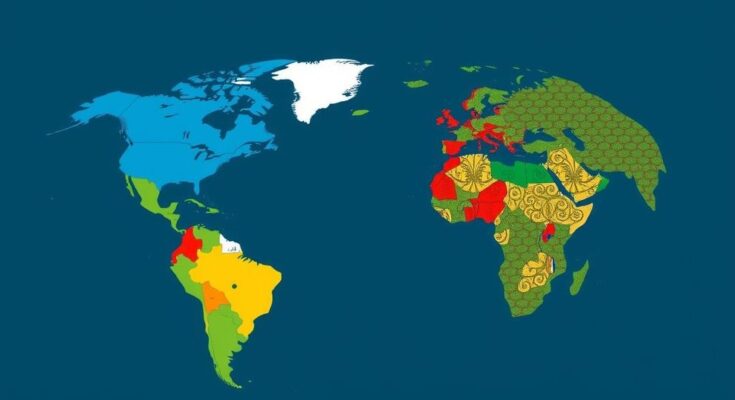At COP29 in Azerbaijan, wealthy nations agreed to boost climate finance to $300 billion annually aimed at aiding developing nations to combat climate change, after initial offers were met with outrage. Key discussions highlighted the insufficiency of funds and the need for direct assistance in the form of grants rather than loans, alongside contentious debates surrounding commitments to transition from fossil fuels.
At the recent UN climate talks held in Azerbaijan, affluent countries reached an agreement to elevate their climate finance commitment to $300 billion annually to assist developing nations in addressing the ongoing climate crisis. This culmination followed intensive negotiations among high-level ministers from notable nations including China, the EU, Saudi Arabia, Brazil, the UK, US, and Australia. Despite the decision, the response from developing countries was one of outrage regarding the previously proposed $250 billion target, which they deemed insufficient to facilitate a transition to a low-carbon economy and to adapt to extreme weather conditions.
The negotiations spanned through the night and reflected the urgency and complications surrounding climate finance discussions. Several affluent nations, while showing willingness to augment their offer, indicated that the proposed $300 billion would still fall short of the $1.3 trillion required by developing nations by 2035, as outlined in a draft document circulating previous to the discussions. Moreover, it is critical to note that numerous developing countries expressed desires for significant portions of climate funding to be in the form of grants rather than loans, emphasizing the substantial debt burdens already faced by many of these nations.
In the wider context of the climate negotiations, the financing proposal is just one aspect of the complex issues being debated. Rich nations are cautious about committing to obligations that may not be fulfilled, especially in light of potential political shifts in various countries next year. Furthermore, the Azerbaijani presidency has faced criticism for appearing to dilute commitments to transition away from fossil fuels, escalating tensions between nations advocating for stronger emphasis on renewable energy and those perceived to be stalling progress, particularly Saudi Arabia.
Overall, while the $300 billion commitment represents a step forward in negotiations, substantial criticisms remain regarding the adequacy of this pledge and the broader implications for developing nations. Ultimately, the outcomes of these discussions will play a pivotal role in shaping the response to the climate crisis internationally and the support extended to the nations most affected by its impacts.
The negotiations at COP29 come against a backdrop of heightened awareness and urgency regarding the climate crisis. Historically, developing nations have called for more significant financial assistance from wealthy countries, who have contributed disproportionately to greenhouse gas emissions. The expectation is that affluent nations participate in climate reparations via financial aid to help poorer countries both mitigate and adapt to the adverse effects of climate change. Furthermore, the discussions at COP29 spotlight not only the need for immediate funding but also the necessity for sustainable transitions away from fossil fuels, prompting critical conversations about political commitments and accountability.
In conclusion, the agreement among wealthy nations to potentially increase climate finance to $300 billion per year represents a significant, albeit insufficient, advance in support for developing countries facing existential challenges due to climate change. The anger expressed by developing nations highlights the persistent gap between financial offerings and the actual needs, underscoring the critical dialogues surrounding climate financing commitments and fossil fuel transition. These developments continue to underscore the complexities and urgent responsibilities that lie ahead in global climate negotiations.
Original Source: www.theguardian.com




